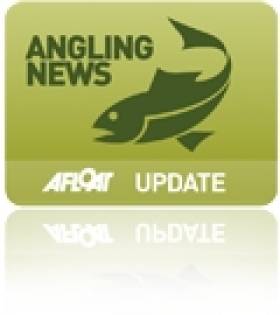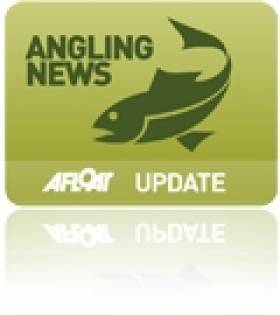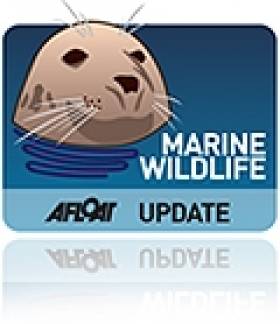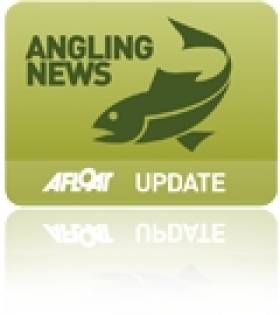Displaying items by tag: invasive species
IADA Hosts 'Biosecurity Awareness' Evenings for Anglers
#ANGLING - The Irish Angling Development Alliance (IADA) is running a series of biosecurity awareness evenings at venues across Ireland over the next two months.
The evenings follow from the "success" of the IADA's awareness section at the recent Ireland Angling Show, and will provide an opportunity for more people to "meet with experts in the field and see what invasive species are first-hand".
Three events, in association with Inland Fisheries Ireland, are scheduled:
- 27 March at the Wetlands Centre, Ballybay, Co Monagahan (hosted by the Ballybay Angling Association)
- 18 April at the Cavan Crystal Hotel, Cavan (hosted by the Cavan Anglers Club)
- 23 May at the Salthill Hotel in Salthill, Galway (hosted by the Galway CAC)
All events run from 7:30pm till 9pm. Admission is free and all are welcome.
For more information contact Peter Walsh at [email protected]
Salmon Conservation Scheme Extended to 2012
#ANGLING - Inland Fisheries Ireland's Salmon Conservation Scheme has been extended into 2012, with funding increased to a total of €200,000.
The pilot scheme will facilitate the rehabilitation of salmon stocks, giving priority to rivers below their conservation limit which have the greatest prospect of recovery.
Applications are now being invited for salmon conservation projects, to a maximum value of €10,000 per project. Applicants must outline the benefits of the project, the ability to plan and complete the project, and value for money. Any statutory approvals necessary, such as planning permission, must be in place.
Examples of schemes that can be funded include: fish passage improvement; spawning enhancement, instream structures such as weirs and deflectors; river bank protection; tree pruning and planting; and removal of invasive species.
Minister for Communiations, Energy and Natural Resources, Pat Rabbitte, commented: "This scheme has been proven to enhance habitat, knowledge and ultimately the wonderful angling and commercial fisheries we enjoy in Ireland adding benefit to local economies."
Application forms are available from the Inland Fisheries Ireland website HERE.
The closing date for applications is 31 March 2012.
'Toxic Maltesers' To Tackle Scourge of Zebra Mussels
A UK-based manufactuer of pesticides has developed a so-called 'toxic malteser' to help tackle the scourge of invasive zebra mussels.
The razor-edged mussels have no natural predators in UK and Irish waters so spread rapidly and wreak havoc on water treatment plants and other industrial facilities, from oil rigs to ship hulls, fish farms and power stations.
But Cambridge firm Biobullets claims its pellet-sized toxin - which is deadly to zebra mussels but harmless to other marine wildlife - is the solution to the problem.
Aside from their own environmental benefits, the pellets also help avoid the old method of removing mussels by dousing them in chlorine, which is toxic in high doses.
'No Dip No Draw' Policy for Irish Anglers
Inland Fisheries Ireland has implemented 'no dip no draw' policy for competitive angling to prevent the spread of invasive species in Ireland's inland waters.
The policy, developed by the Irish Angling Development Alliance and endorsed by all affiliated clubs, aims to prevent Irish rivers and lakes coming in to contact with "a wide range of aquatic species of pathigens that could prove harmful to our game, coarse and pike fisheries" and which could "easily and inadvertently be introduced to Irish watercourses through contamination of angling equipment and associated gear".
As a result, disinfection prior to events for any and all angling equipment or tackle that comes into direct contact with fish or water is mandatory.
The IFI provides details for anglers and competition organisers regarding best procedure for implementing the policy in its Code of Practice, currently available online HERE.
































































